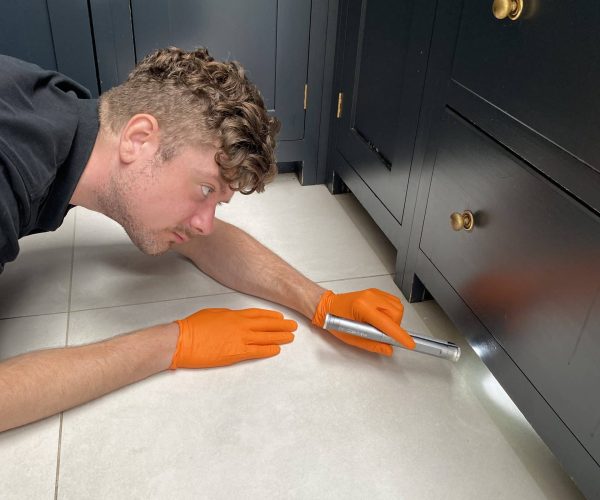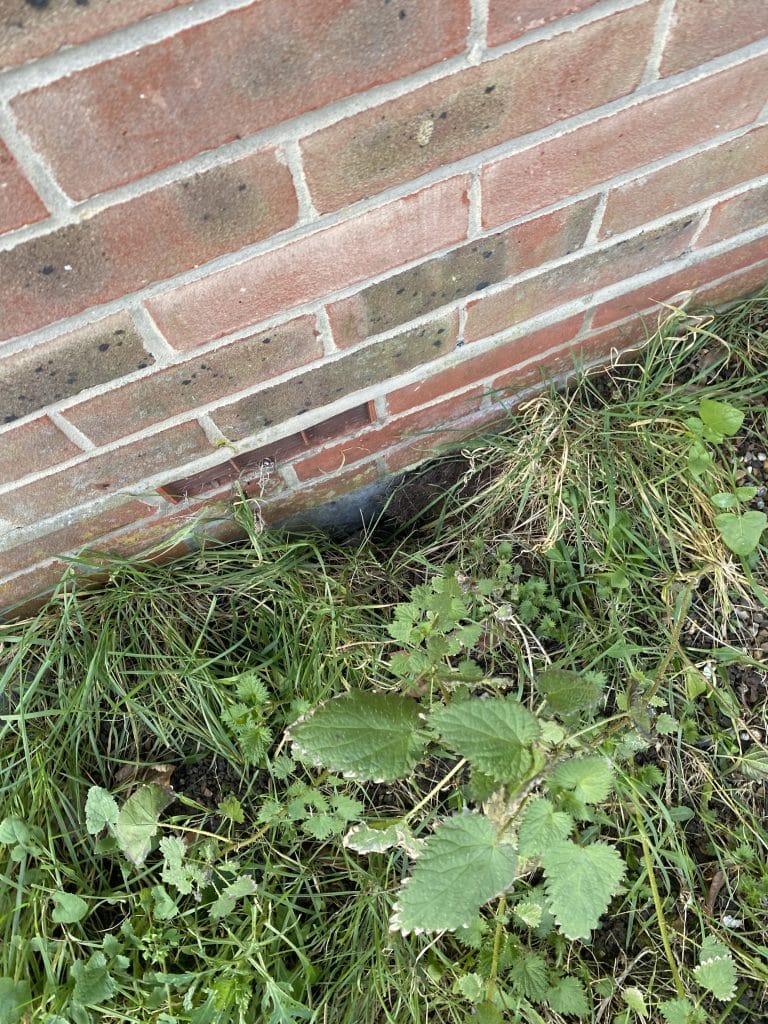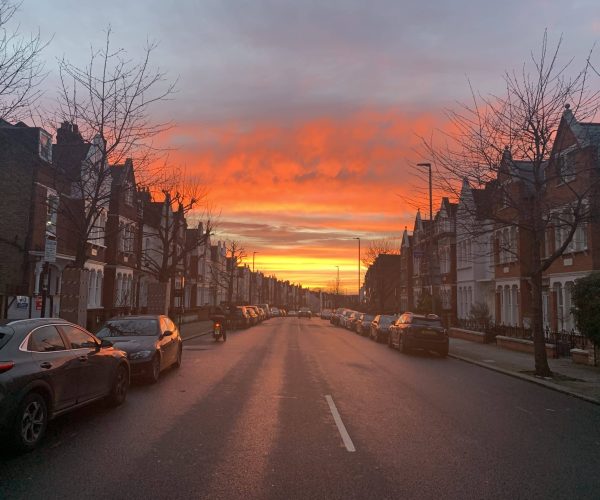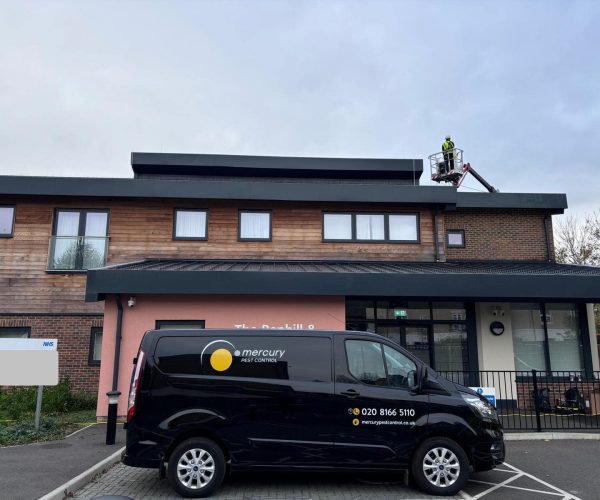
Rat Control London
Got rats in your London home or business? Fast, safe and guaranteed Rat Control and drainage solutions in London.
Professional rat removal for London homes and businesses – same- day visits, child and pet-safe solutions, and clear, upfront pricing

Identify: we will inspect your property and drainage network to identify the root cause of the infestation
Report: we will provide you with clear reports with detailed treatment and proofing recommendations.
Treat & Monitor: using our expert knowledge, and we will use trapping methods to remove the rats without unpleasant smells.
Proof: using guaranteed methods and drainage solutions to prevent future entry

Do I have rats?
You are more likely to spot signs of an infestation than the rodent itself. There are some common signs to look out for in your home or business.
- Smells: an infestation can produce a ‘stale’ odour, mainly if there is a severe infestation. Rats can produce around 15 ml of urine per day which has a distinctive ammonia smell.
- Footprints: will be visible where rats have moved over muddy or dusty surfaces. Long, thin depression marks may also indicate that a tail has rested in an area.
- Damage: as a result of gnawing and burrowing. Can cause damage to the structure of drains by burrowing around the earth or behind sewers. There is also a risk that this rodent will chew through electrical wiring, resulting in electrical failures or even fires.
- Burrows: outdoors are sometimes easy to spot. They tend to be located under decking or sheds or by banks, tree roots, flat stones or flower beds.
- Droppings Are larger than mouse droppings and are dark brown in colour. Rats produce substantially less droppings than other rodents. For this reason, their droppings may be harder to spot due to the fact they will only lay faeces in a small number of locations where they feel comfortable.
- Scratching noises: in the walls or underneath floorboards are a common sign. Nocturnal creatures, so noises are often heard at night. If you hear these noises during the day, this could be a sign of a significant infestation.
Rat Control For London Homes
The population of rats in London is growing exponentially. London is a densely populated capital city with a vast, interconnected sewer network. Because they are not fussy eaters, they will always identify a source of sustenance. Our expert pest controllers have significant experience providing rat control and removal services in London. Our rat control treatments for London homes is a four-stage process:


Commercial Rat Control London:
The number of businesses in London grows annually. An increase in the number of companies, coupled with a rising population in the city, means that rats will always be able to seek out sustenance and a place to nest. We have significant experience working with a range of commercial customers to treat and manage rat infestations in London:
- Hospitality industry: A rat infestation can be extremely damaging to your reputation if you own a bar or restaurant. Therefore, tailored pest management will protect your business from a rat infestation.
- Apartment blocks: high-rise buildings which are commonly found in London provide several entry points for Rats. Rats can enter blocks via refuse areas, carparks, drainage systems and plant cupboards, therefore a regular pest management contract which controls the internal and external surrounding
- Food production: There is significant legislation that protects customers from buying or eating food that is contaminated with rodent droppings, urine or hair. Therefore, all food production companies must have a dedicated pest management and control system to comply with the law and protect customers from contaminated foodstuffs due to infestations.
- Offices: busy offices in central London can be a high risk for pest activity. Regular pest management inspections will eradicate, monitor and control rat activity.
About rats
- Name: ‘Rattus norvegicus’ – the Norway, common or sewer brown rat.
- Size: 200-370mm and can jump a height of more than 75cms.
- Features: A single pair of upper and lower incisor teeth, a blunt muzzle with a heavy body and small eyes and ears.
- Sustenance: omnivorous and will often seek food from drains, sewerage systems and rubbish. Will eat 20-30g of food per day and will seek food from a small number of feeding points.
- Life expectancy: around 12 months.
- Faeces: produce about 40 droppings per day. Droppings are 12mm long and described as ‘spindle shaped’.
- Reproduction: commence breeding from about 12-13 weeks.
- Nesting: lives in colonies with a robust hierarchical system. Will often build complex burrow systems which have multiple points of entry and interconnecting tunnels.
Rat Control London - Frequently Asked Questions
Yes, they are good swimmers and climbers. They can also survive submerged underwater for a relatively long period. Therefore, they have been known to climb up toilet u-bends and into a bathroom. Preventative measures, such as installing drain barriers and replacing plastic piping with steel pipes, can reduce the risk of a rat climbing up your toilet.
No, they are active all-year-round, which means they do not hibernate. They have very distinguishable feeding patterns and will hoard food to eat at a later date.
It is possible to have a rat and mice infestation in your home or business at the same time. A rat’s smell may be a deterrent for a mice as rats can kill and eat mice. This is known as ‘muricide’.
Yes, they are dangerous because they can transmit diseases that are a threat to public health. Disease, such as Weil’s disease, salmonellosis and Lyme disease, can be spread to humans via faeces, urine, or from fleas or ticks which live on their fur.
Yes, they tend to be more active at night as they sleep during the day. Therefore, a common sign of an infestation is hearing scratching noises in the walls or under the floorboards at night.
The most distinguishable difference between the two is the size. Measuring between 200-270mm, they are around three times the size of mice, which measure between 70-90mm. Subsequently, suppose you have a rat infestation. In that case, the scratching noises that can be heard in walls or under floors will be much louder than if you had a mouse infestation. In addition to this, their droppings are less common than mice droppings because they will only lay faeces where they feel comfortable. Finally, mice are incontinent, which means they will produce a significant number of droppings a day which will be spread throughout your home or business, while rats will lay fewer droppings.
